For Our Daughters tells the stories of clergy sexual abuse survivors in their own words
This article originally appeared at Baptist News Global on September 26, 2024.
“Nothing draws fire like drawing attention to sexual abuse and coverups in white evangelical churches. Nothing even comes close.”
These are the words Kristin Du Mez chose to reflect on as she prepared herself on the eve of the release of her film For Our Daughters. “Those of us who do this work know what’s coming.”
Nineteen months earlier, she posted online: “I’ve noted this pattern for two-plus years now. What sickens me is that I know this is only a mild version of what survivors face in these spaces. And they don’t have platforms and often don’t have people who have their backs.”
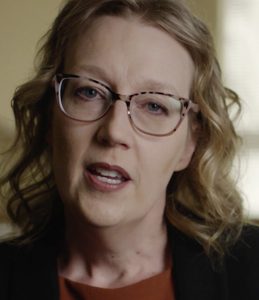
Kristin Du Mez
That’s what For our Daughters provides. It’s an opportunity for women who have been abused by powerful men within the most influential movements of modern evangelicalism to warn the rest of the women in the country about what’s ahead for them if these men expand their power beyond the walls of their homes and churches to the government this November.
Soon after Du Mez’s bestselling book, Jesus and John Wayne, released in the summer of 2020, Du Mez began hearing from conservative evangelical women who told her: “Kristin, it’s too late for us. We’ve made our choices and we’re living our lives that we made. But we want something different for our daughters.”
As Du Mez reflected on the platform her book has given her over the past four years, she wanted to center the perspectives of women on the underside of conservative evangelicalism’s gender hierarchies. As she said recently, “This film is for their daughters and for all our daughters.”
The question those of us who watch the documentary now will have to ask ourselves is: Will we have their backs, or will we continue to perpetuate the system of sacralized male power that abused them?
Listening to the stories of women
Directed by Emmy award-winning filmmaker Carl Byker, For Our Daughters interviews women who have been victims or whistleblowers of sexual abuse in Southern Baptist churches. After the 2019 investigative report from the Houston Chronicle and San Antonio Express-News revealed more than 700 victims of sexual abuse from SBC church leaders and volunteers since 2000, awareness and calls for justice have continued to grow, despite the SBC’s lack of meaningful reform.
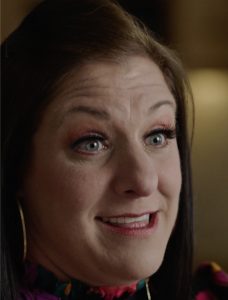
Jules Woodson
In addition to appearances by Du Mez, as well as a couple from her pastor, Lee Vander Zee, interviews in the film include Christa Brown (writer for BNG and author of Baptistland), Tiffany Thigpen, Jules Woodson, Rachael Denhollander (author of What Is a Girl Worth) and Cait West (author of Rift).
Hearing these women share their stories is gut wrenching. You don’t know what righteous indignation feels like until you listen to what their pastors did to them. There are moments in the film when you see them slumping over, measuring their words or looking directly into the camera with deep tears, bewilderment or rage that makes you wonder how much more you can hear.
But if you want to have their back, you have to listen. You have to listen with the empathy the men at the top of the towers of evangelical power warn us against having. And as you listen, you have to start honing your ability to recognize the theologies and arguments these men use to hurt and dismiss women.
Often in these towers, the men try to discredit women by referencing women’s hurt at the hands of abusive men. For example, Mike Winger once attempted to discredit Beth Allison Barr’s work on the history of biblical manhood and womanhood by saying it was a “story-driven theology” that is false and keeps women from reading their Bibles because they’re “emotional about it and intense about it.” He said if you have “raw edges of grief and anger and righteous indignation, you’re not going to be able to let the Bible guide and direct you here. I can’t view the world through my pain.”
But what if the pain these women feel isn’t a hindrance to their understanding of what’s happening? What if their pain is their self-awareness and attunement to what happens to women’s bodies at the hands of violent men?
The violent extremism of authoritarian Christianity
With images playing from the Stronger Men’s Conference that featured men driving monster trucks through pyrotechnics and flames while shooting fake machine guns, Du Mez notes: “Christian nationalists see themselves as entrusted with this duty to take back the country. Their plan for winning this war is for Christian men to be aggressive, militantly masculine, even violent.”
“Their plan for winning this war is for Christian men to be aggressive, militantly masculine, even violent.”
Driscoll, who was kicked off the stage at the Stronger Men’s Conference after claiming a Jezebel Spirit opened the conference when another man took off his shirt, swallowed a sword all the way down his throat and climbed a pole, is seen praying, “God, we didn’t come just to go to church. We came to go to war.”
“How do you make America great again?” Pastor Brian Gibson of HIS Church asks, “You make America Christian again.”
Worship leader Sean Feucht clarifies at the ReAwaken America tour: “We get called, ‘Well, you’re Christian nationalists! You want the kingdom to be the government!’” Then he answers, “Yes!”
Vincent James Foxx admits: “The point of Christian nationalism, my goal, is to break American democracy.”
And referring back to January 6, which he helped promote ahead of the attack on the U.S. Capitol, Pastor Greg Locke of Global Vision Bible Church in Nashville, declares: “You ain’t seen an a insurrection yet. My Bible says that the church of the living God is an institution that the gates of hell shall not prevail against it. And the Bible says that we’ll take it by force.”
Protecting the status quo
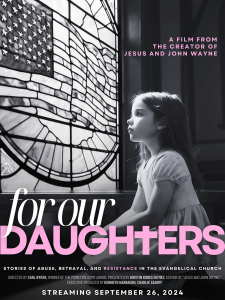 As shocking as those images and words are, it makes all the sense in the world of patriarchy. This is what empires do. As New Testament scholar Mark Strauss explains in Four Portraits, One Jesus, in the Roman Empire, “Democratic values of equality and equal rights were almost nonexistent.” So of course, these men of Christian empire would want to break American democracy.
As shocking as those images and words are, it makes all the sense in the world of patriarchy. This is what empires do. As New Testament scholar Mark Strauss explains in Four Portraits, One Jesus, in the Roman Empire, “Democratic values of equality and equal rights were almost nonexistent.” So of course, these men of Christian empire would want to break American democracy.
Strauss continues: “Although people certainly had ambition, the greatest goal in life was not to climb the socioeconomic ladder but to protect the status quo. This was done by serving those above you and exercising authority over those below.”
Compare the dynamics of the Roman Empire to the testimony of the women in For Our Daughters. Cait West said: “I was raised to be a wife and a mother one day. So my whole purpose was to become this godly woman and not to serve my own needs or desires.”

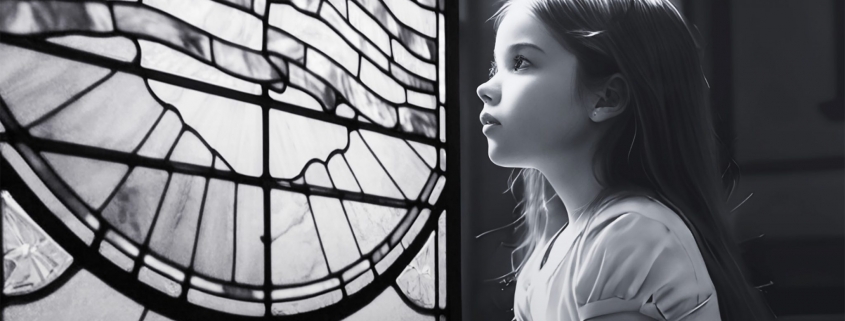


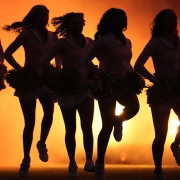
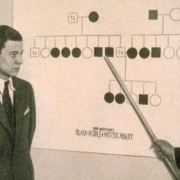

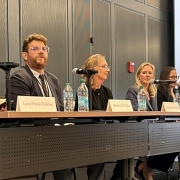


Leave a Reply
Want to join the discussion?Feel free to contribute!